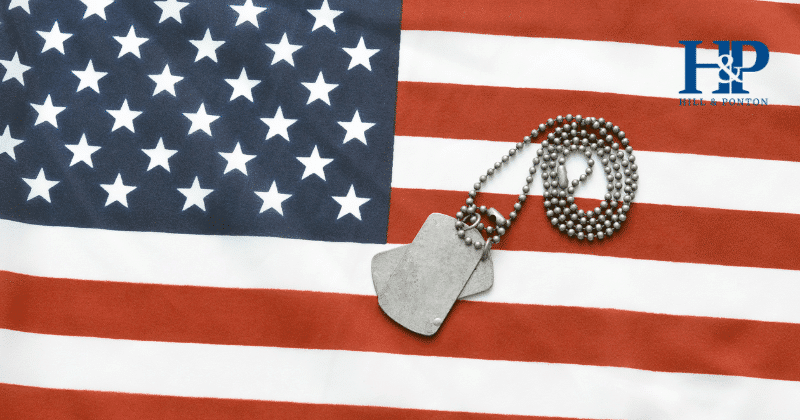When the Board of Veterans’ Appeals issues a denial on a claim, all is not lost—the veteran may still appeal the decision to the Court of Appeals for Veterans’ Claims (CAVC).
What the CAVC is:
Created in 1988, the Court of Appeals for Veterans’ Claims is a federal court and a part of the United States judiciary. While the CAVC handles veterans’ claims, it is not strictly a part of the Veterans’ Administration. The Court is an appellate court of seven judges who are appointed by the President of the United States and confirmed by the Senate for terms of either 13 or 15 years. The Court handles all appeals from BVA denials. A Court decision will grant, remand or deny a claim. In the event that the Court denies the claim, the appellant may appeal that decision to the Federal Circuit.
Representation at Court:
As with the VA process at large, the veteran may present the case at Court without legal representation. However, the claimant should be mindful the Secretary will defend the BVA’s decision and will be represented by an experienced attorney. Therefore, the claimant would greatly benefit from legal assistance at this part of the process.
Not all VA representatives have the qualifications to represent a veteran at Court. A Court representative must have completed the requirements and be admitted to practice with the Court.
How the Court differs from the VA:
No new evidence can be filed at this point
When working with the VA to develop a claim, a claimant may file evidence to support the claim at any time. The VA is required to review and consider evidence at any point in the claim. However, this not the case when the claim is being processed at Court. The Court reviews a case based upon the merits of the claim as it stands—which is essentially the entirety of the Claims File as reviewed by the Veterans Law Judge at the BVA. Therefore, the Court does not allow any additional evidence to be added to the case at this point. Once the Court has made a decision and the file has been returned to the Board, new evidence may be considered.
Legal issue v. factual issue
The Court will adjudicate a case based upon legal issues, not facts. In order to “win” a case at the Court level, the claimant has to prove that the Veteran’s Law Judge (VLJ) made a legal error in denying the claim at the BVA, or that the VA made an error in developing/adjudicating the claim. For example, the Court may overturn a BVA decision because the VLJ failed to consider an issue, or because the VA failed in its duty to assist (under the Veterans Claims Assistance Act). The Court will not consider material facts, such as the veteran’s periods of service, symptoms or rating of the claimed conditions, etc.
Electronic filing
Everything that is filed to and by the Court during the case is filed electronically. In some cases, a copy of the Record Before the Agency is mailed to the presentative for review. Otherwise, all documents are filed via E-mail. The Court has a designated clerk who handles filings.
Filing Deadlines
The Court has set timeframes in which the Appellant (claimant) and the Appellee (Court attorney) must file and respond to documents. The parties may request an extension to file their documents. The filing timeframes facilitated the claim in moving quickly and efficiently through the Court process.
What you need to know about the Court:
Types of CAVC Decisions
The Court will make 3 kinds of decisions:
- Remand: This is the most common type of decision issued by the Court. A Court remand overturns the BVA’s decision with an order that the BVA must make a new decision after having completed the actions outlined in the Remanded Decision. A Court remand is considered a “win”. A decision to remand may occur early in the case (in a Joint Motion for Remand, or JMR), or may be decided by a judge.
- Grant: In some cases, the Court may grant the claim. This, however, is a rare occurrence and should not be counted upon.
- Deny: The Court may deny a claim completely. In the event of a denial, the veteran may appeal that decision to the Federal Circuit. However, the Court of Appeals for the Federal Circuit will only review cases in which VA law is in question. Such a question of VA law might be the interpretation or revision of a Federal Code Regulation. If the veteran’s appeal does not involve a question of VA law, then the veteran may be advised to start the process over by filing a new claim with the VA.
How long it takes
The Court process varies in length. A decision could be made within a few months of filing the appeal—in the case of a JMR—or it could take over a year for a decision to be issued. The duration of the process depends largely on the type of issue involved in the claim, and the defending attorney for the Secretary.
According to the 2014 Annual Report for the CAVC, the median time from filing an appeal to the disposition of the case by the Court, as a whole, is 286 days (9.5 mo). The median time for disposition of a single judge decision once it has been assigned to the judge is 69 days (2.3 mo). It should be noted that judges have a substantial workload, due to the number of appeals that flood the CAVC. In fact, for the FY 2014, the Court delegated an average of 175 cases to each judge.
Types of review:
If JMR is not agreed upon, the case is assigned to a judge for adjudication. The case may be reviewed by a single judge, a panel of three judges, or before the entire Court at an Oral Argument. However, the presentation of a case before a panel or the full court is quite rare. Most decisions are issued by a single judge.
EAJA Fees
In 1980, Congress enacted the Equal Access to Justice Act, by which the VA would pay attorneys’ fees for representation at the Court level. Normally it is very expensive to fight a legal case against the U.S. government. EAJA makes it much easier for a claimant to obtain legal representation for the claim at this level. That being said, if the attorney/ representative wins the case, there is no fee or backpay due to the claimant. Only the representative is paid.


